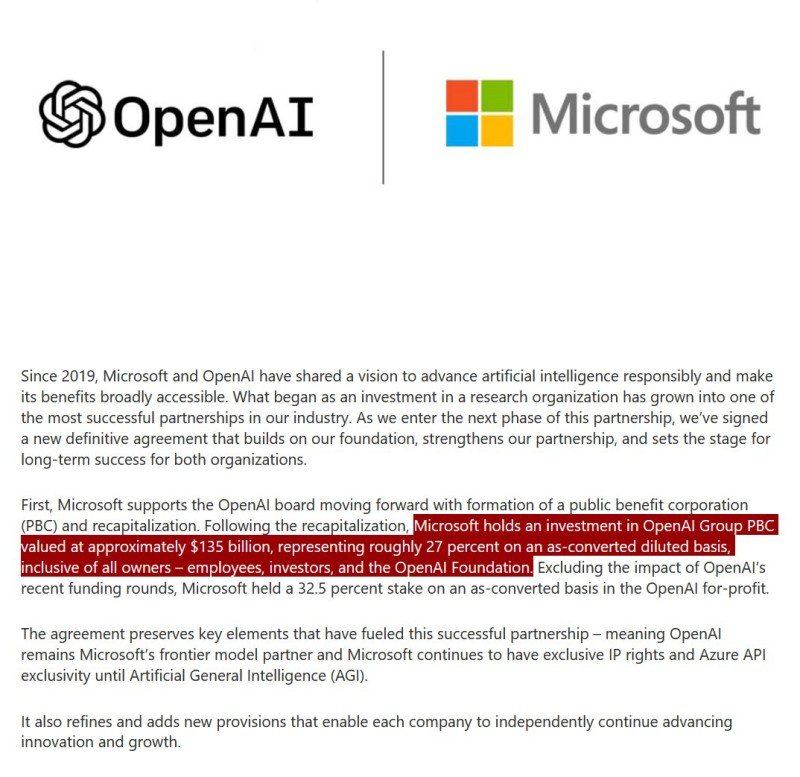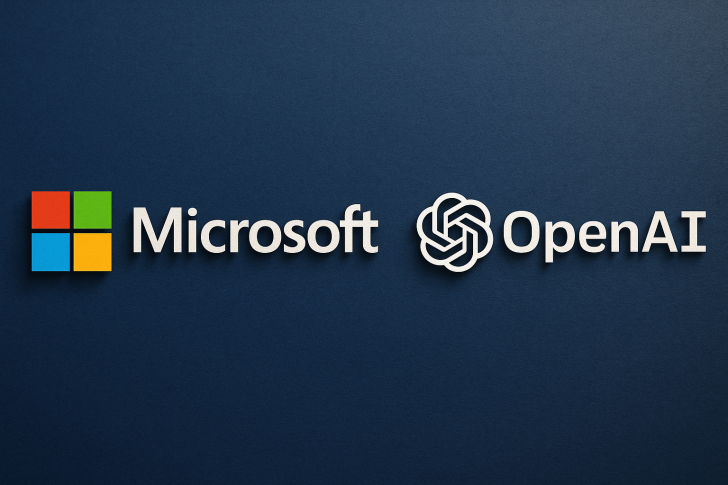Microsoft has significantly expanded its partnership with OpenAI, now holding a $135 billion stake that represents approximately 27% ownership in the company's newly established Public Benefit Corporation. This move solidifies Microsoft's position as OpenAI's most important commercial partner and highlights its central role in shaping the future of artificial intelligence.
Disclose.tv Trader Reports Major Ownership Shift
According to recent reports shared by Disclose.tv, Microsoft's investment in OpenAI Group PBC is now valued at roughly $135 billion, representing about 27% on an as-converted diluted basis when accounting for all stakeholders including employees, investors, and the OpenAI Foundation.

Before this restructuring, Microsoft held approximately 32.5% of the for-profit entity. The transition to a Public Benefit Corporation structure allows OpenAI to pursue both commercial success and its mission to ensure AI benefits humanity while maintaining financial sustainability.
A Partnership That Changed the AI Landscape
Microsoft and OpenAI have been working together since 2019, and what started as a research collaboration has grown into one of tech's most influential partnerships. Microsoft serves as OpenAI's exclusive cloud provider, powering the company's models through Azure infrastructure and integrating them into products like Microsoft Copilot and Azure OpenAI Service. The newly signed agreement strengthens this collaboration while preserving OpenAI's independence in research and governance. Both companies remain committed to developing Artificial General Intelligence responsibly, staying true to OpenAI's mission-driven principles even as they scale commercially.
What This Means for the AI Industry
The move toward a Public Benefit Corporation reflects growing awareness around responsible AI development. OpenAI's new structure aims to balance profit with purpose, addressing public concerns about AI accountability, data ethics, and power concentration. Industry observers note that Microsoft's expanded investment provides financial security and ensures deeper integration of OpenAI's technology across Microsoft's enterprise platform. However, it also raises questions about market competition, regulatory oversight, and the risks of dependency in an increasingly consolidated AI sector. Both organizations maintain their partnership will promote innovation and transparency while setting global standards for safe and equitable artificial intelligence.
 Alex Dudov
Alex Dudov

 Alex Dudov
Alex Dudov


